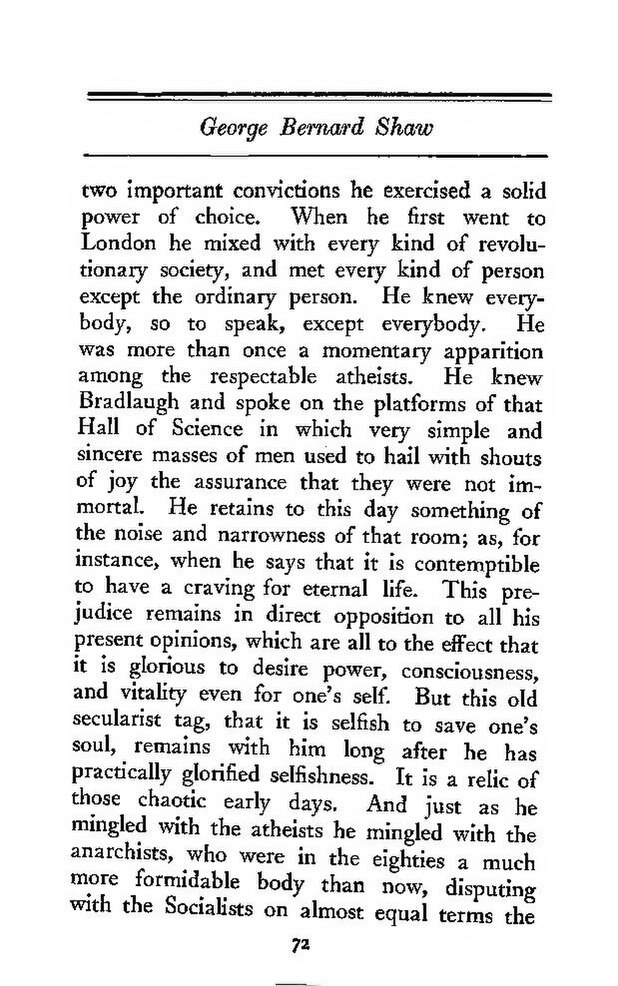two important convictions he exercised a solid power of choice. When he first went to London he mixed with every kind of revolutionary society, and met every kind of person except the ordinary person. He knew everybody, so to speak, except everybody. He was more than once a momentary apparition among the respectable atheists. He knew Bradlaugh and spoke on the platforms of that Hall of Science in which very simple and sincere masses of men used to hail with shouts of joy the assurance that they were not immortal. He retains to this day something of the noise and narrowness of that room; as, for instance, when he says that it is contemptible to have a craving for eternal life. This prejudice remains in direct opposition to all his present opinions, which are all to the effect that it is glorious to desire power, consciousness, and vitality even for one's self. But this old secularist tag, that it is selfish to save one's soul, remains with him long after he has practically glorified selfishness. It is a relic of those chaotic early days. And just as he mingled with the atheists he mingled with the anarchists, who were in the eighties a much more formidable body than now, disputing with the Socialists on almost equal terms the
72
